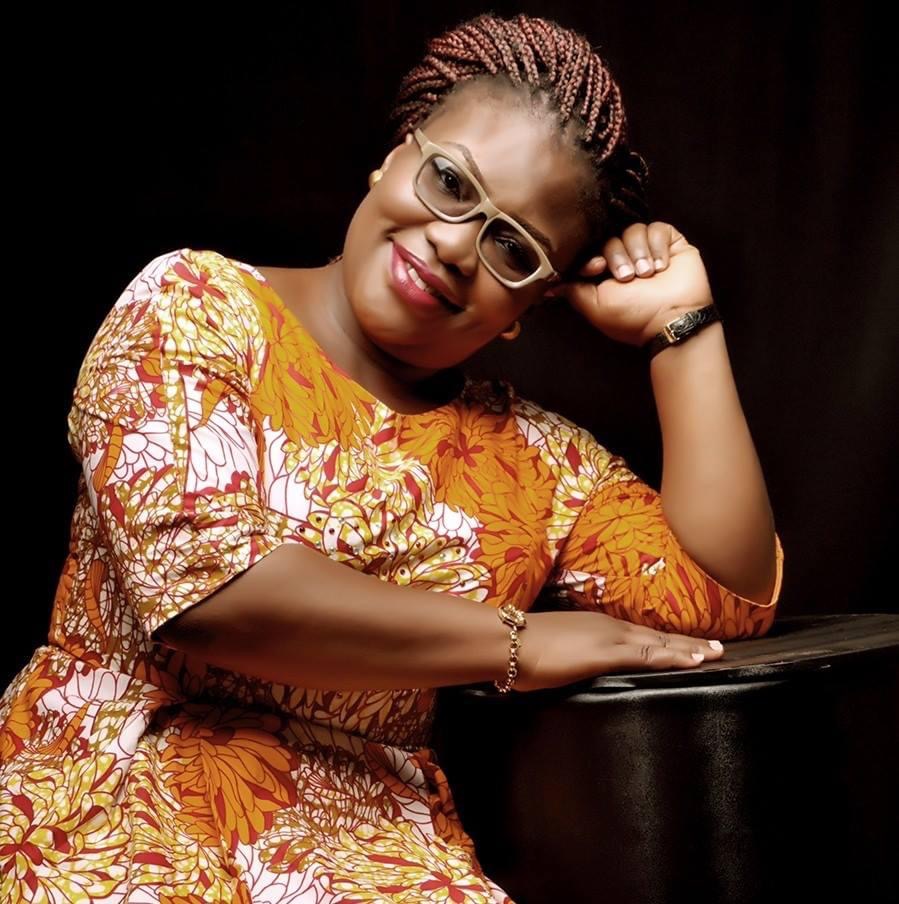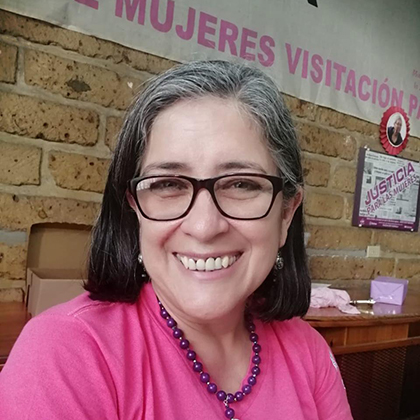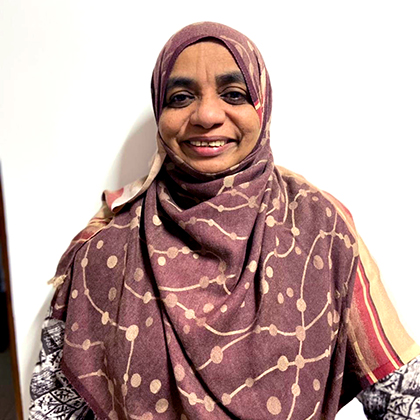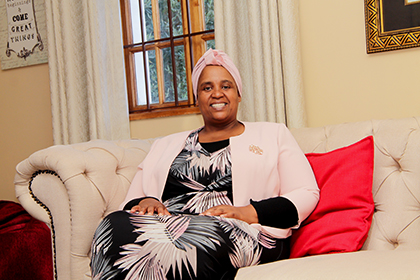Women’s Voice and Leadership: Standing up for an equal future in a COVID-19 world

Canada is an ally of women’s rights organizations and movements, helping to amplify their voices around the world by investing $182 million in the initiative.
Just as many of our health, education or social service organizations have been overwhelmed with increased needs in Canada, so too women’s rights organizations have seen increased needs from women who can’t buy food for their families or who are experiencing violence. The flexible funding from the WVL initiative helps to meet their needs.
In Canada and around the world, an estimated 1 in 3 women will experience physical or sexual abuse in her lifetime. There has been an alarming upsurge in domestic violence because of the COVID-19 pandemic. UN Women has attributed this rise to isolation with abusers, movement restrictions, cramped living conditions and security, and worries about health and money.
The pandemic has highlighted the uneven burden carried by women, particularly in the Global South.
Women are on the front lines of the COVID-19 crisis, working in health care as caregivers and community organizers. But this very truth also provides a path forward in facing the pandemic and the underlying inequality, because women are effective community leaders.
That is why Canada’s Women’s Voice and Leadership (WVL) initiative supports grassroots organizations that advance women’s rights, especially those working with vulnerable and marginalized women and girls, including 2SLGBTQI+ communities.
For International Women’s Day, we profile four dynamic women whose efforts are supported by the program in Nigeria, Honduras, Sri Lanka and South Africa. From empowering rural women and fighting danger to giving women a voice in their communities and pathways out of poverty, their dedication and activism change lives.
Vivian Efem-Bassey: Empowering rural women to stand up for their rights in Nigeria
Vivian Efem-Bassey discovered the women’s rights movement and her drive to help others at an early age. “In university, my friend introduced me to the youth wing of Women in Nigeria, one of the first feminist movements in Nigeria,” she explains.
She didn’t pick an easy path and she has faced a lot of pushback over the years, but she uses every opportunity to educate people.
"My father at some point was concerned that I might not get married,” she says.

Vivian Efem-Bassey
“It’s challenging being a feminist and a women’s rights advocate in Nigeria,” says Vivian, who prefers to go by her first name. “People generally assume that feminists are angry women, either divorced or unmarried, who have a vendetta against men and are out to emasculate them and take over leadership. However, we are changing the narrative by involving them in related interventions that give them clarity and help them understand why we should all be feminists.”
Vivian’s passion and drive to lift people up have carried over to this day as project coordinator (South) with ActionAid Nigeria on WVL – Nigeria. It works with about 120 women’s rights organizations, 72 of which are community-based.
“Many of these are women’s organizations located in rural communities, which are addressing sexual gender-based violence issues,” she says. “Women’s rights organizations provide support to survivors of sexual and gender-based violence. The idea is that once the women are economically empowered, they can sever links with their perpetrators and become independent.”
“It is about leaving to live,” Vivian says.
The economic issue has worsened for a lot of women during the COVID-19 pandemic and the lockdown that came with it. But it has also provided the opportunity to empower vulnerable people.
“My favourite example is the petty traders in some markets in Lagos state,” says Vivian.
“These women sell their goods by the side of the road or in markets. When the COVID-19 pandemic came along and the state went on lockdown, these women’s businesses came to a standstill. They had previously lived on their day-to-day profit and it was now gone.”
Vivian says that like in most countries around the world, suddenly most trade was happening on the Internet, but these women had no clue as to how to go about this. Some of them were stuck at home with violent partners with nowhere to go and no daily income.
“With the physical space shut down, everyone went online on Instagram or Facebook and these women didn’t know how,” says Vivian. “Through the WVL project, our partners trained them once the lockdown was lifted and they were provided with the information and skills required to start selling online, even if only by text or WhatsApp messaging. This widened their customer base and they are now better prepared.”
These women are empowered, says Vivian. “They are enlightened, they know what they are doing, and they have the knowledge to fight for their rights.”
Vivian says the WVL initiative and Canada’s Feminist International Assistance Policy have lined up with her own mission and drive, and this encourages her to do more.
Cristina Alvarado: Fighting danger and discrimination in Honduras
Cristina Alvarado learned early about the social conditions that leave women vulnerable to violence in her native Honduras, having been sexually abused by her stepfather as a teenager. She fled home without even the support of her mother, herself a victim of domestic abuse, and felt powerless to fight the culture of danger and discrimination for women all around her.
She didn’t remain that way.

Christina Alvarado
Alvarado trained as a social worker and therapist and by her 30s had become a committed feminist. “I started to understand the situation that leaves women struggling with inequality in this society,” she recalls. “I was also able to heal myself and heal my relationship with my mother.”
She joined the Visitación Padilla Women’s Movement for Peace, an organization that promotes and protects the rights of Honduran women and girls whose lives have been affected by violence. It is named for Visitación Padilla, an educator and feminist activist in the country in the early 1900s.
Today Alvarado heads a program there that provides legal and emotional assistance to survivors of violencia machista or sexist violence. She counsels them, champions the cause in national forums and draws attention to the country’s staggering levels of femicide, the killing of women because of their gender.
The COVID-19 pandemic and two hurricanes that ripped through Honduras last year increased levels of violence against women significantly, says Alvarado. There were 103,063 emergency calls involving domestic violence in 2020, and “only a small fraction led to criminal complaints and convictions.” She notes that from January 1 to February 15 of this year, 33 women were violently murdered in Honduras.
Alvarado has assisted survivors of violence such as Nancy, who says she finally left a nine-year abusive relationship after Alvarado “helped me discover my value, my potential, my heart and my light.” The two met virtually given the COVID-19 lockdown, says Alvarado, noting that the organization’s digital presence has been enhanced through the WVL - Honduras project, which is implemented by Oxfam-Québec. WVL supports its online conferences and workshops and promotes “cyber-activism” by young feminists trained in themes of violence and feminist leadership using social media.
Alvarado hopes close relations between Canada and Honduras will bring “mutual learning” between the two countries. She’s encouraged to hear the voices of a new generation of Honduran women emerging, as well as to see new ways of thinking that respect diversity and build the capacity of women to “change our lives.”
There continue to be bad days—such as a horrible one in the first days of February, when 5 women were found dead from domestic violence—although Alvarado is optimistic.
“The situation is difficult,” she allows. “But the last thing I will lose is hope.”
Aneesa Firthous: Giving women a voice in Sri Lanka
As a primary school teacher in Sri Lanka, Aneesa Firthous saw how the mothers of her students struggled with economic insecurity, social isolation and legal discrimination. Motivated to help her Muslim community of Kattankudy in the country’s eastern district of Batticaloa, in 2000 she co-founded a group dedicated to righting these inequalities.

Aneesa Firthous
Three years later, it registered as a formal organization, the Islamic Women’s Association for Research and Empowerment, or IWARE, and got busy helping women and girls amid “one problem after another,” Firthous recalls. These ranged from the 2004 Indian Ocean tsunami, which brought hardships as entire neighbourhoods of Kattankudy were devastated and resettled, to the 2019 Easter Sunday bombings by Islamic extremists, which left the families of suspected terrorists in the town ostracized.
Firthous quit her job in 2012 to devote all her time to IWARE. Today she’s president of the organization, which campaigns for progressive reforms in Sri Lanka. For instance, it has lobbied for 10 years to change the Muslim Marriage and Divorce Act (1951), the main law governing marriage and family matters in Muslim communities in the country. It sets the “marriageable” age of women at 12 years old, does not require the consent of brides to marry and does not allow women to be judges, jurors or other representatives in Quazi, or family, court.
“Women have no voice and they can’t argue their rights,” says Firthous. She feels the problem for many women is that they marry and have children young and are then abandoned by their husbands, at which point they’re uneducated and unemployable.
She says IWARE has had some success arguing for reforms to the act, with an announcement expected soon by the government on the matter. In this and other efforts, she is grateful for the support of WVL - Sri Lanka. It helps IWARE train volunteer “change-makers” in progressive Islamic perspectives, who offer the women and girls of Kattankudy emotional and social support. These “befrienders” especially focus on counter-radicalization activities in the community, Firthous says.
She appreciates the encouragement of her husband and her extended family for her activism, and she is especially inspired by her 23-year-old daughter, who is studying to become a lawyer, with a focus on human rights.
IWARE faces criticism and threats for its progressive leadership, Firthous says. And the COVID-19 crisis has brought significant challenges, reducing women’s informal employment, increasing domestic violence and causing girls to drop out of school. WVL provides funds so IWARE can raise awareness of COVID-19 safety, distribute hygiene kits and offer stipends to women who are most affected.
Firthous is proud that her organization is “supporting women to be strong,” talking about different social perspectives, contributing to new mindsets and gaining a presence politically. “We are looking forward to more success,” she says.
Ncazelo Nucbe-Mlilo: Telling a second story for healing from trauma, violence and abuse
Ncazelo Nucbe-Mlilo works with a team of counsellors, psychologists and social workers in South Africa to help people who have been through hardships to find hope.
“We help them step into what we call the second stories of their lives, stories that can be sustaining of people. We acknowledge the hardship, but step into a reawakening of the sense of myself.”

Ncazelo Nucbe-Mlilo
Nucbe-Mlilo says she has seen many success stories in her time, but one in particular stands out.
“Sarah first came to one of our sessions and I couldn’t even see her eyes, she was hurting and struggling with the effects of abuse in her life. She had gone through a lot of difficulties and was really feeling distraught and hopeless, and also struggling with poverty as a single mother.”
Sarah’s journey involved going through 10 sessions of the Phola COURRAGE program, which was developed in 2014.
“Soon she had found her voice and began to appreciate that she was a survivor and that there were a lot of possibilities for her life,” says Nucbe-Mlilo. “She started to appreciate that she was not alone and that she had important relationships in her life that have helped her to survive hardship and abuse.”
Nucbe-Mlilo says Sarah’s story brought her to a connection with her grandmother, a strong woman who raised 12 grandchildren on her own.
“She gave so much of her life and sacrificed so much. So Sarah started to think ‘My grandmother gave me so much and had so many dreams for my life. I want to take care of myself. For a long time, I have kept anger and it has destroyed me. I always think about the abuse and the struggles but now I see so much beauty in my life.”
Nucbe-Mlilo says Sarah’s daughter is now part of the team helping other women. She describes this as an amazing story of overcoming hardship.
“That for me stands out because I have such a vivid picture of where she started and the transformation she has experienced.”
Nucbe-Mlilo says the team’s approach honours the knowledge and skills that people who have been affected by trauma and hardships have.
“We help them to have a voice and to be authors of their own stories and address issues that are challenging to them,” she says. “We really believe in community, in social connectedness. Tackling guilt and shame that go with violence and trauma helps them to find ways to create pathways out of poverty.”
With funding from the WVL initiative, her team has scaled up using a narrative approach to reach women and girls who have experienced gender-based violence.
“We have converted caravans into mobile counselling units so they don’t have to struggle to get the help they need. We go to their spaces and schools, to women’s shelters and communities so we can be there to help them deal with their struggles.”
- Date Modified: